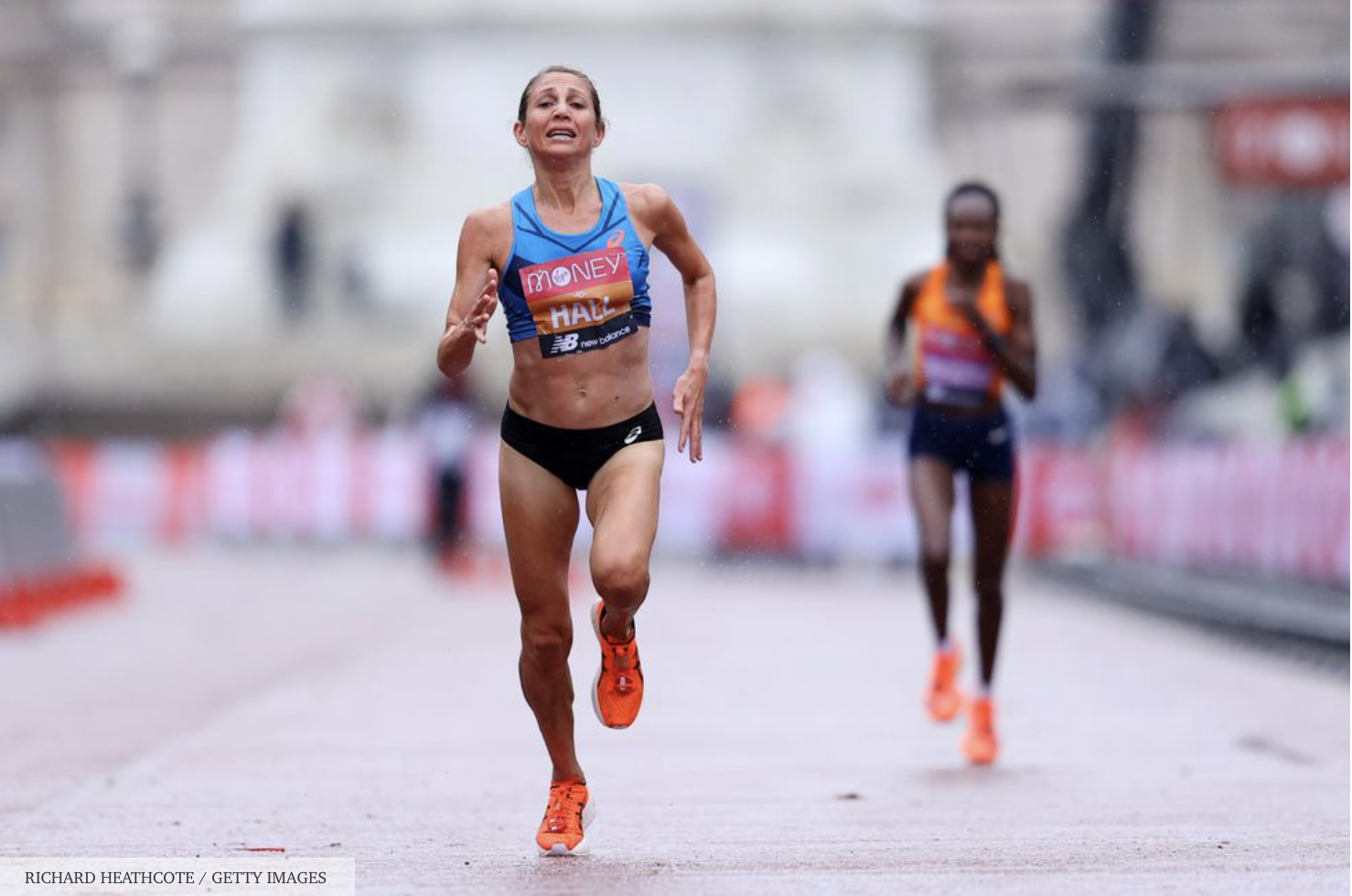by Cindy Kuzma | Runner’s World
Here’s how you can build the strength and power to surge like Sara Hall and Shura Kitata.
Last Sunday’s London Marathon provided a long-awaited outlet for racers and fans—complete with down-to-the-wire finishes.
American Sara Hall—who’d moved up from ninth place at the halfway mark to third at the 40K mark—surged past world champion Ruth Chepngetich in the last 150 meters to claim second place and a personal-best 2:22:01. On a media call this week, she described her mindset as “hunt mode,” saying, “I kind of just, in faith, started throwing myself forward and willing everything in my body forward.”
On the men’s side, Shura Kitata of Ethiopia sprinted down the line to finish in 2:05:41, just one second ahead of Vincent Kipchumba (with third-place Sisay Lemma coming in at 2:05:45).
Of course, Kitata and Hall first put themselves in a good position by pacing wisely over the first 26 miles and dialing in elements like nutrition and hydration. But in elite races, the finishing kick often determines who moves on to finals, ascends podiums, or claims victory, says Juli Benson, who’s coached collegiate and pro runners for two decades (including another athlete known for her kick, Jenny Simpson).
For the rest of us, the ability to change gears at the end can make the difference in reaching a specific time goal, like breaking 24 minutes in the 5K or qualifying for the Boston Marathon or a PR. What’s more, powering across a finish line stands as a sign you’ve raced to your potential, rather than starting too fast and fading.
“Scientifically, what the evidence shows is that the most efficient way to run a race is evenly paced, and a very close second is a negative split,” said Benson, who’s also a 1996 Olympian in the 1500 meters. “Across the board, having a good finish—no matter what you’re training for—can really be the difference between how you feel about your performance.”
Some of that kick comes naturally. Hall said genetic tests show she has the makeup of a power/speed athlete, with more fast-twitch muscle fibers to turn to even when her legs are fatigued. She won her first race ever—a seventh-grade cross-country competition—and the 2000 Footlocker National High School Cross Country Championships in sprint finishes. “I think I just got hooked on the competitive side of that part of it, the thrill of that,” she said.
But she’s also worked hard to hone that skill through the years, and you can too. Here’s how.
Finish every run strong.
Even if you run completely even splits, your last lap or mile will feel far harder than your first. “It’s really important to teach your body how to put more mental and physical intensity in as you go, as that fatigue sets in,” Benson said.
Fortunately, you can train this skill nearly every day. Even on an easy run, take your last mile about 20 seconds or so faster than the first one, she suggested.
You can do it during long runs too, spending the last few minutes of a 90-minute to two-hour run picking it up while focusing on your form and technique. “This reinforces the idea that even though you might be fatigued, you can still be strong,” said James McKirdy, a coach at McKirdy Trained in Flagstaff, Arizona.






